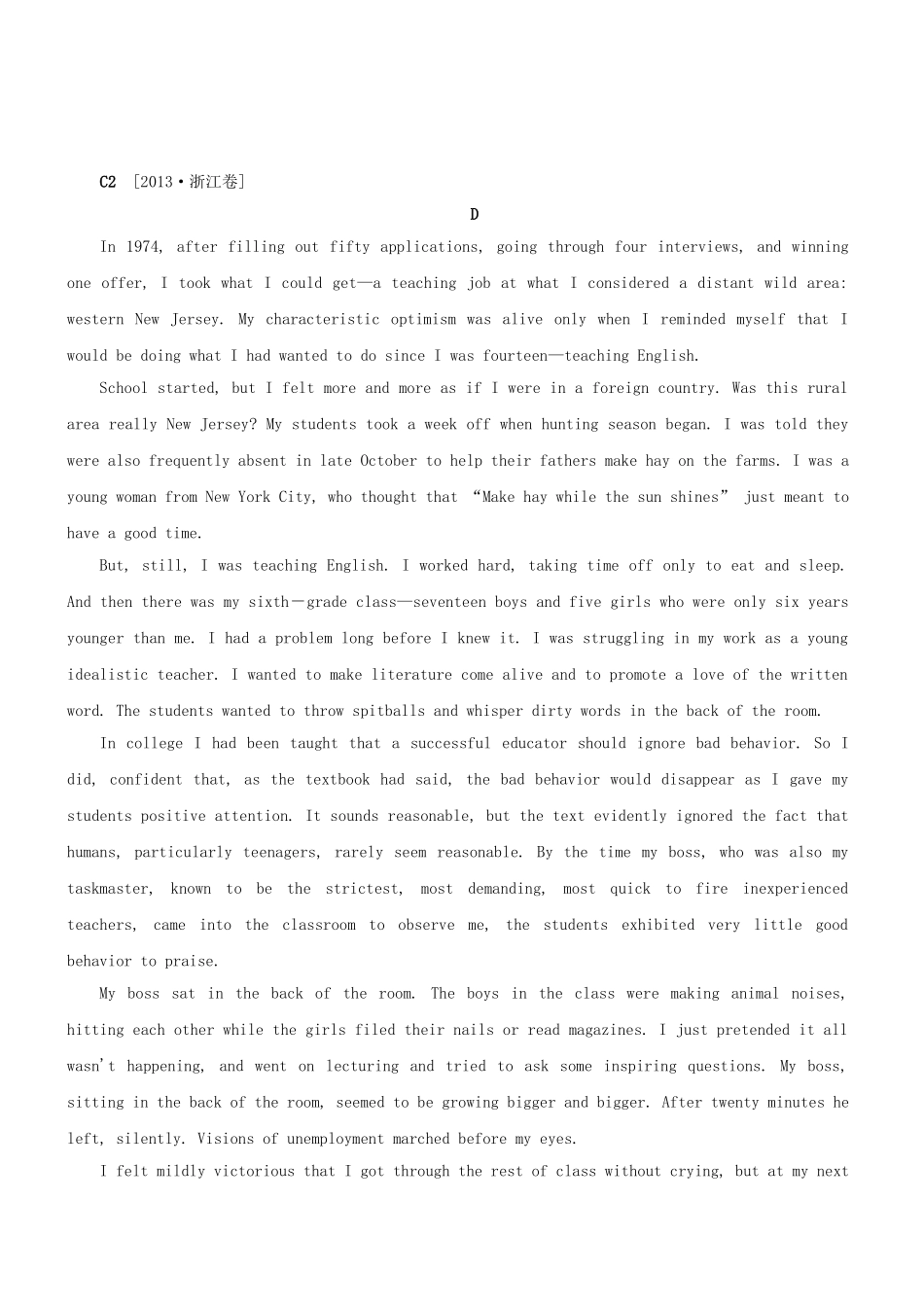C2[2013·浙江卷] DIn 1974, after filling out fifty applications, going through four interviews, and winning one offer, I took what I could get—a teaching job at what I considered a distant wild area: western New Jersey. My characteristic optimism was alive only when I reminded myself that I would be doing what I had wanted to do since I was fourteen—teaching English. School started, but I felt more and more as if I were in a foreign country. Was this rural area really New Jersey? My students took a week off when hunting season began. I was told they were also frequently absent in late October to help their fathers make hay on the farms. I was a young woman from New York City, who thought that “Make hay while the sun shines” just meant to have a good time. But, still, I was teaching English. I worked hard, taking time off only to eat and sleep. And then there was my sixth-grade class—seventeen boys and five girls who were only six years younger than me. I had a problem long before I knew it. I was struggling in my work as a young idealistic teacher. I wanted to make literature come alive and to promote a love of the written word. The students wanted to throw spitballs and whisper dirty words in the back of the room. In college I had been taught that a successful educator should ignore bad behavior. So I did, confident that, as the textbook had said, the bad behavior would disappear as I gave my students positive attention. It sounds reasonable, but the text evidently ignored the fact that humans, particularly teenagers, rarely seem reasonable. By the time my boss, who was also my taskmaster, known to be the strictest, most demanding, most quick to fire inexperien...


